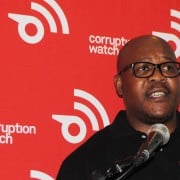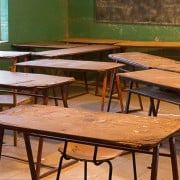|
Getting your Trinity Audio player ready...
|
Corruption Watch released its latest schools report last week – the publication centred on 10 investigations conducted by the organisation, and highlighted the main areas of corruption in schools, the key players in this type of corruption and the heroic work of whistleblowers. Based on experience, it also made some recommendations on how to mitigate this corruption.
Corruption Watch worked with the Gauteng Department of Education (GDE) on all investigations, and afforded it, as well as the alleged perpetrators, every opportunity to comment and clarify. While some of our queries were answered and others were not at the time of publication, we have since received a positive response from the GDE regarding one of the investigations.
One of the schools we focused on – the independent Providence Academy, located in downtown Johannesburg – is to be de-registered after allegations of corruption and abuse of power were investigated further by the GDE’s Assessments Directorate as well as the Johannesburg Crime Prevention Unit. The Crime Prevention Unit recommended that the GDE deal with the matter, and it has decided to re-register the school. The school will be notified in writing of this intention, and will also get a chance to appeal, after which further action will be taken, said the GDE.
“Corruption Watch is very pleased with the decision of the Gauteng Department of Education to take steps to de-register Providence Academy,” said Corruption Watch’s head of legal and investigations, Leanne Govindsamy. “We are confident that the GDE will take all necessary steps to sanction those responsible for mismanagement and other irregularities at the school, to protect the interests of all learners, educators and other employees of the academy.”
Edward Mosuwe, the newly appointed head of department at the GDE, was present at the launch of our schools report on 22 October. As HOD, he plays a critical role in investigating and sanctioning schools corruption. “His recent response in the Providence Academy matter reveals his commitment to doing so. We look forward to working with him and the GDE in eradicating corruption at Gauteng schools,” said Govindsamy.
Corruption a threat to pupils’ futures
In March 2015, we received a report regarding an alleged case of corruption and abuse of power at Providence Academy. The school is registered as a non-profit establishment and as such, is eligible for financial support from the GDE.
Among others, the report alleged manipulation of the Grade 11 exam results to reflect substantially higher marks than those learners really achieved. It was believed this was done to secure a bigger financial subsidy from the GDE. We have seen documents reflecting the marks pupils originally achieved, as well as copies of reports that were issued by the school in December 2013, and can confirm that the marks on the two sets of documents are different.
A second reason for manipulating the marks, revealed our reporter, was to enable the pupils to secure places at tertiary institutions. The perpetrator of this fraud is alleged to be the principal of Providence Academy, Brighton Sikwili.
A person who commits this fraud does no favour for pupils who wouldn’t otherwise meet university academic standards, as they will struggle in that competitive and demanding environment, and may fail and become disillusioned. In the meantime, genuinely deserving students, who could succeed and contribute meaningfully to the country’s growth, may have been unable to secure a place.
We contacted Sikwili for comment, who handed the matter over to his attorneys. They denied everything, and did not address the issues we raised.
We also submitted questions to the GDE, but we only received its response a week after our publication was released. We asked whether there had been any prior report of irregularities at Providence, and if so, what had been done about it, among other questions.
The GDE’s positive response upholds our own findings, and we will continue to follow the case until it is finally closed.
“Following the release of Corruption Watch’s report on schools corruption, we have repeatedly been asked about sanctions against those implicated in our investigations,” said Govindsamy.
“We have responded to say that although we do not have the power to impose sanctions, we endeavour to work closely with those responsible for imposing sanctions and to create an environment which enables them to do so, either by acting as a buffer between whistleblowers and responsible departments and investigators, or by providing information and other support. Our efforts in this space have resulted in success.”








